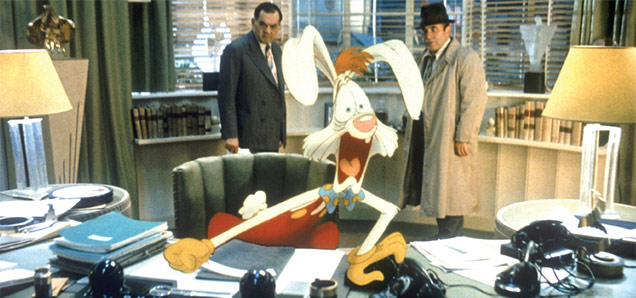Reading Between The Lines: Adaptation deviation: When movies strayed away and were better for it
 CREDIT: TOUCHSTONE PICTURES
CREDIT: TOUCHSTONE PICTURESSometimes deviating from original source material is for the best. Who Framed Roger Rabbit is perhaps better than the novel it is adapted from.
The biggest complaint of any book fan is just how badly the movie seemed to screw it all up. Deviations, for the sake of squeezing in story within a run time or just because, almost never seem to go over well in the final cut. Sometimes, however, mediocre or even good source material can prove inspiration to talented filmmakers to create something even better.
M*A*S*H (1970)
M*A*S*H, Robert Altman’s first film, is a comedy-drama milestone. The story of soldiers in the Korean War drew strong parallels with the ongoing, hugely unpopular Vietnam War, and gave viewers a cast of darkly humorous, sympathetic bastards to dive into the madness with. The Richard Hooker novel, the basis for the film on the other hand, was, as Altman put it, somewhat racist. Luckily, Altman’s rebellious style of improvised filmmaking turned the salvageable into a modern classic.
Who Framed Roger Rabbit (1987)
Who Framed Roger Rabbit still looks amazing. Of course, while all the other elements – the characters, the story of the classic gumshoe tale tossed in with the insanity of talkie cartoons – are strong and well done, the strongest element of the film is the sheer effort of bringing cartoons to life. The film continues to dazzle audiences with its seamless human-cartoon interactions, and through incredibly difficult, non-digital means. Most people don’t know, however, the source of the film was Who Censored Roger Rabbit? – a novel written by Gary K. Wolf. I use the word source, because the book serves more or less an inspiration rather than a base for adaptation, being the story of comic strip characters being photographed for the daily edition, rather than Golden Age cartoon characters having anvils dropped on them in front of rolling cameras. Plus, the novel centres around the death of Roger Rabbit and, let’s be honest, the movie would have been poorer without him.
The Shining (1980)
Fans of the film might know the verbal fisticuffs that director Stanley Kubrick had with author Stephen King over source material deviation. The story of the horrors that take place within the confines of a lonesome moutaintop resort was so far removed from the novel that King insisted on having his name removed from marketing. Let’s be honest, this film really is Stanley Kubrick’s, and it’s better for it, regarded for being highly influential to this day – despite its negative contemporary reviews and, ironically, winning the first Razzie for Worst Film. If you want to see Stephen King’s vision come to life, there’s always the TV miniseries, bragging fire-hoses that are also CG monsters and other silliness.













